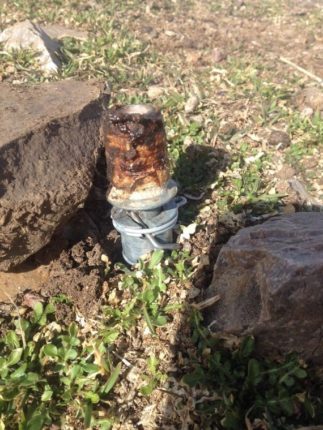Today Congressman Peter DeFazio introduced H.R. 1817, the Chemical Poisons Reduction Act of 2017, legislation that would ban the use of the lethal poisons Compound 1080 and sodium cyanide for predator control efforts.
The bill is supported by the national wildlife advocacy group Predator Defense, as well as the Humane Society.
“I have been trying to ban the indiscriminate use of lethal devices and poisons like Compound 1080 and the chemicals used in M-44 devices for decades, even as a Lane County Commissioner,” said Rep.Peter DeFazio, (D-OR). “The use of these deadly toxins by Wildlife Services has led to countless deaths of family pets and innocent animals and injuries to humans. It is only a matter of time before they kill someone. These extreme so-called ‘predator control’ methods have been proven no more effective than non-lethal methods—the only difference between the two is that the lethal methods supported by the ranching industry are subsidized by American tax dollars.”
“The fact that Wildlife Services continues to state that incidents of M-44s killing domestic dogs and exposing people to poison are ‘rare’ is an outrage,” said Brooks Fahy, Executive Director, Predator Defense. “Those of us involved with this issue know these incidents are common-place and that countless more will never be known because of Wildlife Services’ repeated cover-ups. We applaud this legislation and thank Congressman DeFazio for his unfailing support on this issue.”
“It’s high time for our own federal government to stop using sodium cyanide and Compound 1080 on our public lands,” said Wayne Pacelle, Executive Director, the Humane Society Legislative Fund.” These two poisons are highly lethal but completely indiscriminate. They endanger children, beloved family pets, grizzly bears, wolves and bald eagles alike. And the deaths they cause are violent and inhumane.”
Compound 1080 is a tasteless, odorless, and colorless poison with no antidote. Although the EPA banned Compound 1080 in 1972, after intense lobbying from the livestock industry, it was re-approved for use in the “Livestock Protection Collar” (collars containing the poison that are placed around the necks of sheep and burst when punctured by a predator, barbed wire, or other sharp object) in 1985. Each of these collars contains enough poison to kill 6 adult humans.
Sodium cyanide is contained within M-44 devices, which are spring-activated ejectors that deliver a deadly dose of poison when pulled on. The top of the ejector is wrapped with an absorbent material that has been coated with a substance that attracts canines. When the device is activated, a spring ejects the poison. The force of the ejector can spray the cyanide granules up to five feet.
The U.S. Department of Agriculture (USDA)’s Wildlife Services Agency regularly uses both of these poisons in their predator control programs, which are subsidized by the taxpayer. States contract with federal predator control programs to keep so-called ‘predator’ populations down to help ranchers protect their livestock.
The use of these poisons has led to the deaths of endangered animals and domesticated dogs, and has injured multiple people in the past. Most recently, three domestic dogs were killed in Idaho and Wyoming and a teenage boy was nearly poisoned after he accidentally detonated an M-44 device.
“The federal government should not be using these extreme measures,” Rep. Defazio added. “It’s time to stop subsidizing ranchers’ livestock protection efforts with taxpayer dollars and end the unchecked authority of Wildlife Services once and for all.”
